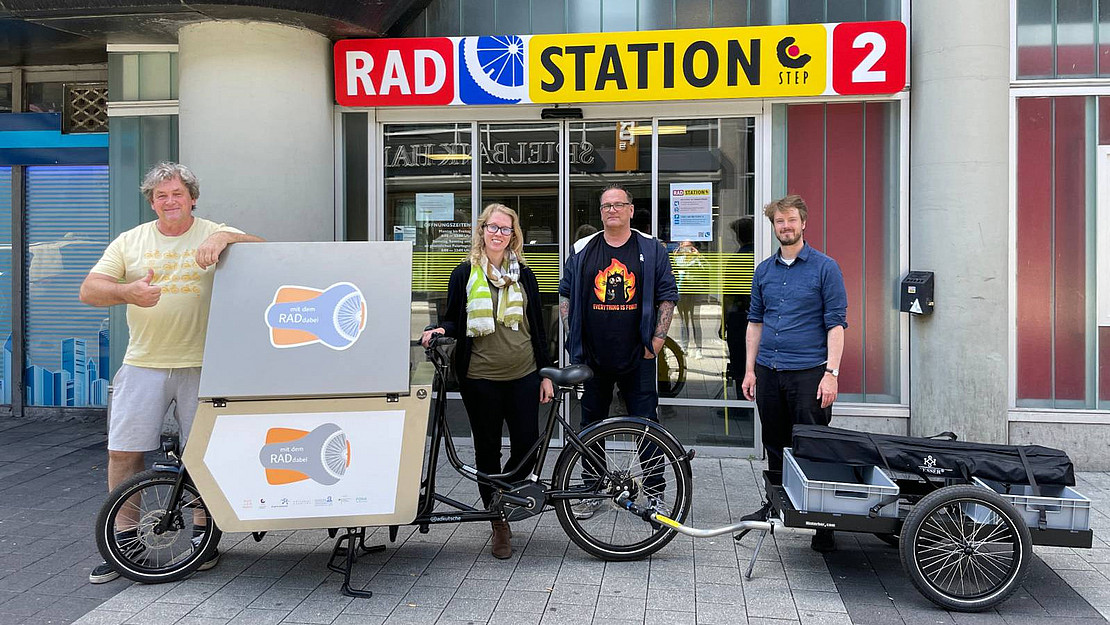Meldung
Social participation through bicycle mobility: researchers publish guide
 Image: Soulstyle.
Image: Soulstyle.The action guideline is the result of the Social2Mobility II research project conducted by the Department of Transport Planning and Transport Systems under the direction of Prof. Dr.-Ing. In the project, the researchers first implemented, tested and evaluated the measures described. According to the project team, six specific measures showed particularly high potential for promoting bicycle mobility, especially for people at risk of poverty. These are presented in detail in the action guide with information and tips for implementation:
- Free rental of bicycles and accessories
- Joint excursions by bike
- Bicycle action days/afternoons
- Mobile self-help bicycle workshop
- Cycling courses for people without cycling skills and bike hire afterwards
- Bicycle markets for people on low incomes
Compared to private cars and public transport, the bicycle is an inexpensive means of transportation. Nevertheless, according to the research team's findings, people at risk of poverty still use bicycles comparatively little in everyday life. People on low incomes can travel independently and autonomously by bike. Bicycle mobility significantly increases the radius of action - especially for people who previously only traveled on foot. This also promotes the social participation of these population groups. "People who cycle not only improve their health, but also actively contribute to the transport transition in Germany," says project team member Franziska Henkel, emphasizing the relevance of bicycle mobility. The aim of the measures is to make the bicycle a reliable everyday companion for people with low incomes.
You can download the complete action guide free of charge at: https://kobra.uni-kassel.de/handle/123456789/15925
More information on the project can be found at: https://www.social2mobility.de/
Contact:
Franziska Henkel, M.Sc.
University of Kassel
Department of Transport Planning and Transport Systems
Phone: +49 561 804-2635
Email: franziska.henkel[at]uni-kassel[dot]de